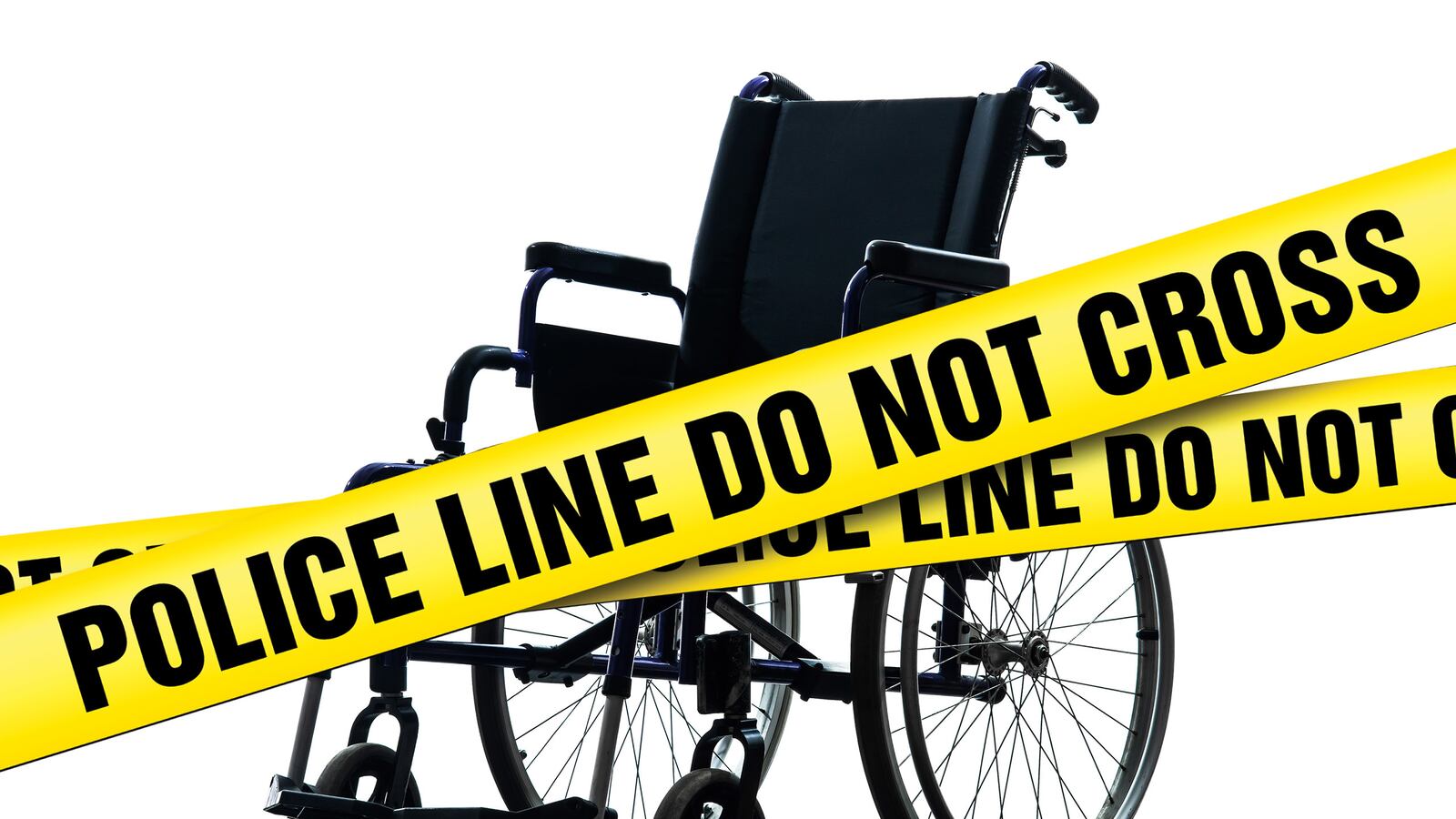The recent tragedy in Ferguson, Missouri, has all-too-painfully illustrated the real and deadly effects that police response can have on a community. For people with disabilities—more than 63 million of them in the U.S.—the threat is all too real. It’s estimated that nearly 15 percent of all calls to the police involve a person with mental illness or disability in crisis. And how officers treat these individuals is too often violent.
In an article in The Atlantic, Lawrence Carter-Long and David M. Perry chronicle several tragic instances of people with disabilities victimized by the police: individuals with cerebral palsy forcibly arrested because officers thought they were drunk; a deaf man Tasered repeatedly because he couldn’t hear the police. The list is unending, and each case involves police mistaking disability for noncompliance.
The disability community recently crafted the hashtag #DisabilitySolidarity to discuss crucial aspects of life for people with disabilities, specifically for people of color. Countless users tweeted about prejudice, intersectionality, and police discrimination.
When Kajieme Powell was murdered on the street in St Louis because of a undiagnosed disability, that could've been me #disabilitysolidarity
— nealcarter (@nealcarter) August 22, 2014While most police officers do receive training on “the special needs population,” the problem is they are trained to defuse situations by issuing commands, such as “Drop that!” and “Get on the ground!” When officers encounter individuals who are unable to follow or understand these commands, like those with mental or physical disabilities, impatient officers can react quickly and forcibly—often with deadly consequences.
In January 2013, these consequences cost Ethan Saylor his life. Saylor, a 26-year-old man with Down syndrome, tried to re-watch a movie in a theater without buying another ticket. As Jeremy Meyer recounts in a Denver Post article, the police were begged to let Saylor’s mother, who was en route, handle the situation herself and peacefully assist Saylor out of the movie theater. Police ignored this advice and instead used brute force to remove Saylor. The young man died on the scene from a crushed larynx after screaming “Mommy, mommy. It hurts.”
“There’s so much I guess law enforcement isn’t aware of sometimes when it comes to people with disabilities,” says Michael Woody, an expert in police training.
The rate mistreatment by police against people with disabilities has reached such a high level, the Senate Judiciary Subcommittee on the Constitution, Civil Rights, and Human Rights held a hearing in April to address the issue. Chaired by Senators Dick Durbin (D-IL) and Ted Cruz (R-TX), the bipartisan effort addressed “law enforcement responses to disabled Americans,” exploring best practices and ways of implementing change. Among the talking points during the hearing: how the Americans with Disabilities Act of 1990 affects police procedure and how exactly the Justice Department can ensure that police around the country are acting in accordance with the federal law.
Michael Woody is president of CIT International, an organization that assists police departments in adopting Crisis Intervention Team training (CIT). Many are hailing CIT as the answer to preventing tragedies like Ethan Saylor’s death. According to the Senate Subcommittee, CIT has been proven to reduce the incarceration rate of individuals with mental illness and disability, as well as reduce injuries and deaths of both vulnerable individuals and the officers responding to the scene.
Rather than simply issuing commands to an individual in crisis, as police would with basic training, CIT-trained officers ask the individual how and what they’re feeling, as well as what they would need to feel better. “They’re not so quick to game tackle or give commands,” says Woody. The officers address individuals in a soft and calm voice, making sure their body language is open and non-threatening. But most of all, Woody tells The Daily Beast, officers focus on “listening to their story, because they’ve always got a story, or something they want to talk about.”
As the individual in crisis talks it out, they might eventually make eye contact with the CIT officer, ultimately allowing the police to help. The end goal is not to bring anyone to jail, but rather to a health care facility where they can speak to a doctor or therapist and receive any necessary treatment.
However, the true genius of CIT takes place before a 911 call is ever made. As Woody explains, “Officers do not have a realistic view of mental illness because they only get called when a person is in crisis.” And so, officers receiving CIT training get to know vulnerable members of the community and their families on a good day, when they’re feeling healthy and happy. This way, officers develop empathy for people with disabilities and are more likely to handle a future crisis situation with gentleness.
According to the University of Memphis CIT Center, every state—except for Alabama, Rhode Island, Arkansas, and West Virginia—have at least one county implementing CIT. Still, too many police departments lack the funding and time to adopt the training. On top of that, officers who become CIT-certified do not receive extra pay or any financial incentives, often taking on three times their previous workload after becoming certified. Other times, a county might not have any psychiatric facilities to receive individuals after a crisis, rendering any services a CIT officer might give largely useless.
“We want the law enforcement to actually form a partnership with mental health and the advocacy groups,” says Woody. In many communities, this partnership has slowly taken root, but only after needless death like Ethan Saylor’s. As Meyer writes in his article, “The ultimate step for developing an understanding of people with disabilities is the most simple: get to know them. Hire them for jobs, spend time with them, include them in your life.”






